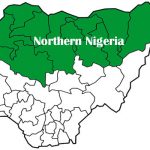Debates trailing the assent of the presidency to the New Minimum Wage Act have made it clear that it would be better if state governments negotiated with the organized labour for the salary structures in their states.
In Oyo State, for example, while the incumbent governor, Abiola Ajimobi, announced his readiness to implement the new wage structure, the governor-elect, Seyi Makinde, has made it known that he doesn’t think the state has capacity to pay N30,000 as minimum wage.
We take Buhari’s pronouncement on federalism with a pinch of salt ― Afenifere
The allocation given each state by the federal government is different, so is the size of the internal generated revenue.
Also, while some states are in large deficit, owing salaries for countless months, some other states are more buoyant. Another factor is that labour size varies across different states.
Perhaps the largest single factor is that cost of living and accessibility to social amenities differ across the board.
There’s, therefore, no explanation for why workers working under these different circumstances should be paid with the same salary structure.
This is a reminder of the importance of restructuring the country. Salary structures should be left in the jurisdiction of state governments if and when we decide to restructure the country.
Olumurewa Olubela,
Ibadan.
WATCH TOP VIDEOS FROM NIGERIAN TRIBUNE TV
- Relationship Hangout: Public vs Private Proposals – Which Truly Wins in Love?
- “No” Is a Complete Sentence: Why You Should Stop Feeling Guilty
- Relationship Hangout: Friendship Talk 2025 – How to Be a Good Friend & Big Questions on Friendship
- Police Overpower Armed Robbers in Ibadan After Fierce Struggle






